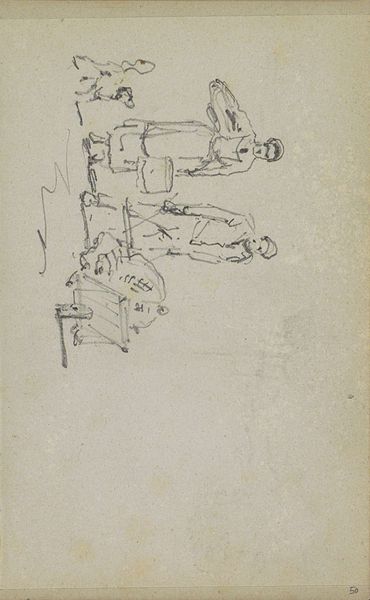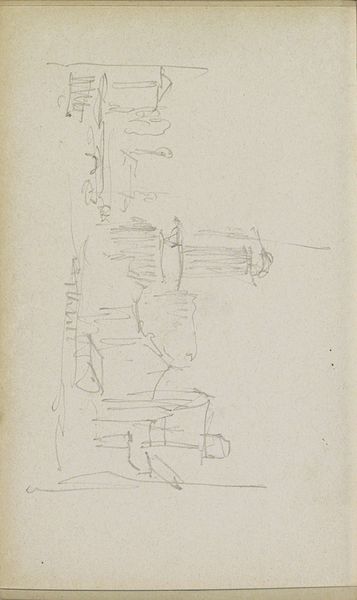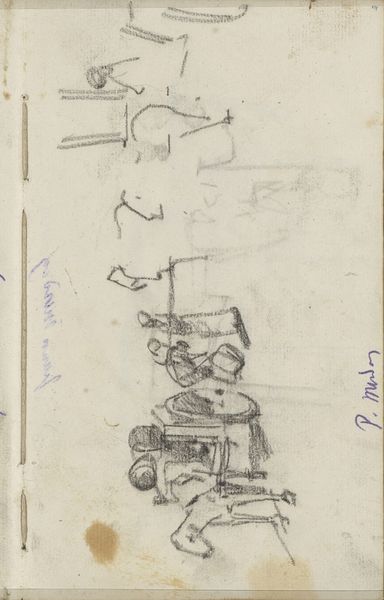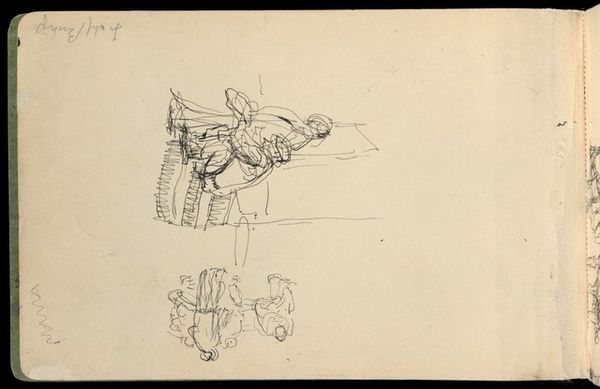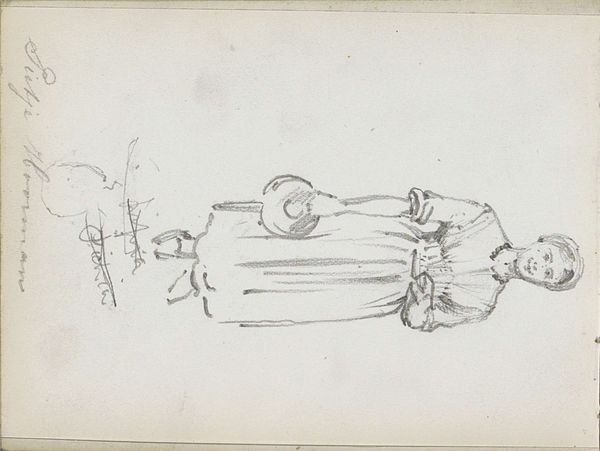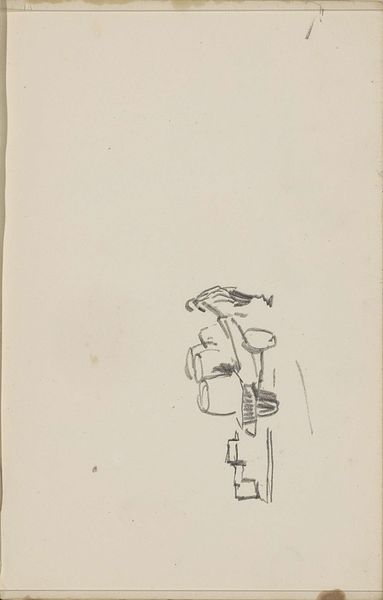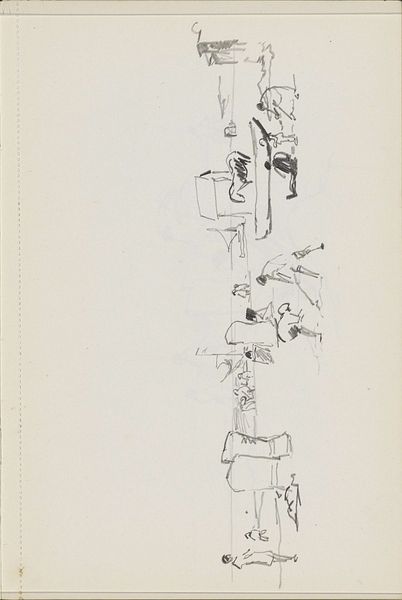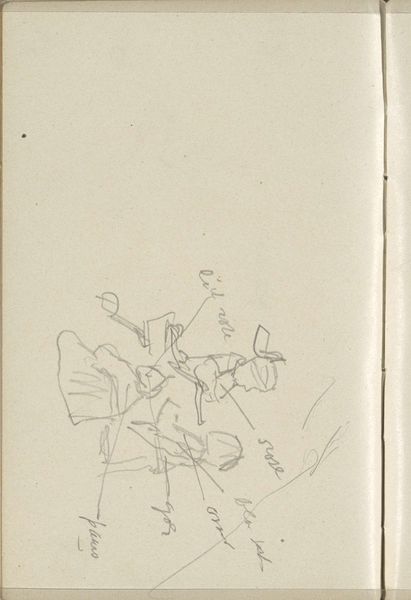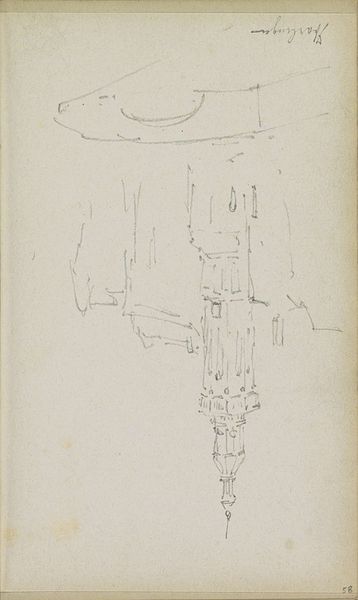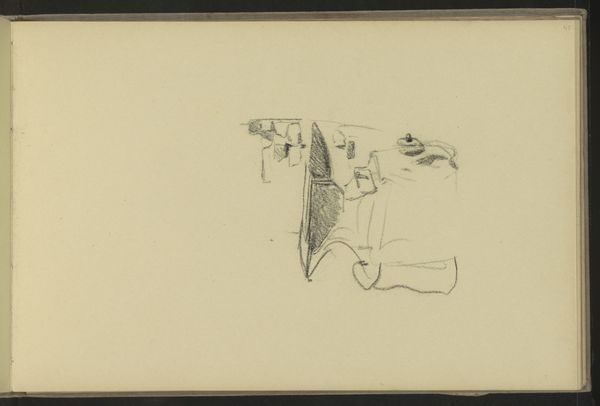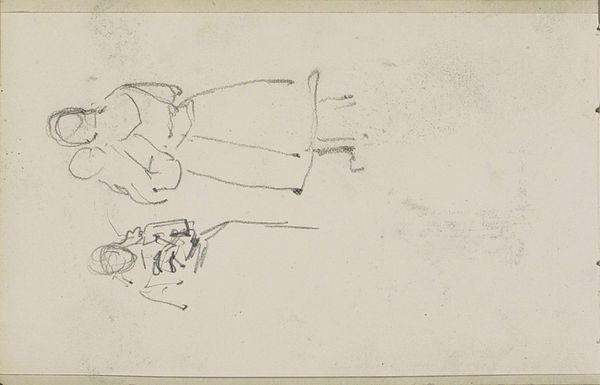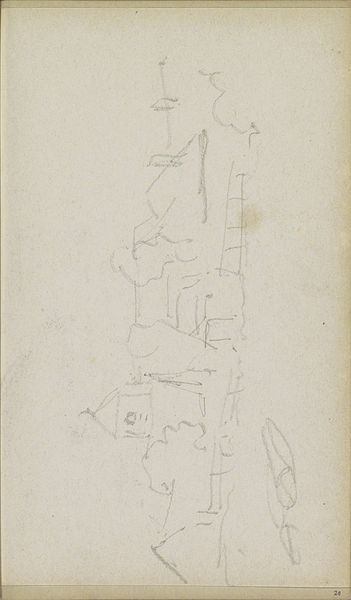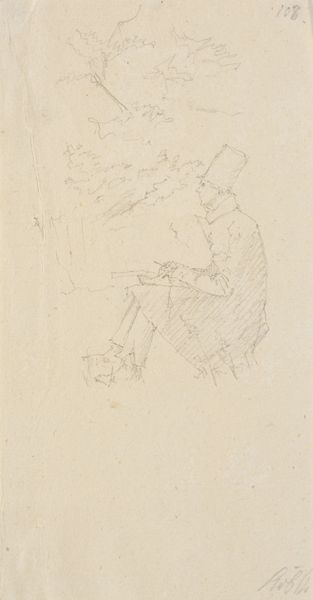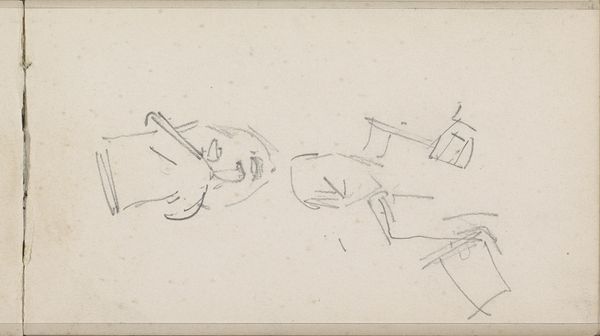
drawing, pencil
#
drawing
#
amateur sketch
#
light pencil work
#
quirky sketch
#
pencil sketch
#
figuration
#
personal sketchbook
#
idea generation sketch
#
ink drawing experimentation
#
pencil
#
sketchbook drawing
#
pencil work
#
genre-painting
#
sketchbook art
#
realism
Copyright: Rijks Museum: Open Domain
Editor: Here we have Adrianus Eversen’s “Two Figures by a Handcart,” likely created sometime between 1828 and 1897. It's a quick pencil drawing, seemingly a study or preliminary sketch. What catches my eye is the way he’s rendered the cart—almost diagrammatic in its simplicity. What do you see in this piece? Curator: It’s intriguing to consider this within the context of 19th-century urban development and industrialization. Eversen is known for his cityscapes; looking at this, I immediately wonder about the function of the handcart. Is it a tool of labor, essential for the movement of goods and the sustenance of those figures? How does the availability of certain materials--the wood and metal used to create it--inform the social stratification of labor? Editor: So, you're thinking about the materials of the cart as a reflection of the social realities of the time? Curator: Precisely. And about the means of production as it affects people's everyday life and the city around them. Who has access to these resources, who’s making and using it? Notice how the figures are quite literally attached to the cart; their labor power is yoked to this simple technology. This resonates strongly with the Realist art movement of the period that emphasized a frank look at all sectors of society. It suggests to me this drawing is part of a larger conversation about urban life. Editor: That makes me consider the perspective from the perspective of the maker of the artwork, what type of studio equipment did he need, and what did it represent during its own era? Thanks for the new insights! Curator: Indeed. Considering the material conditions of the *making* as well. So many new questions emerge.
Comments
No comments
Be the first to comment and join the conversation on the ultimate creative platform.
